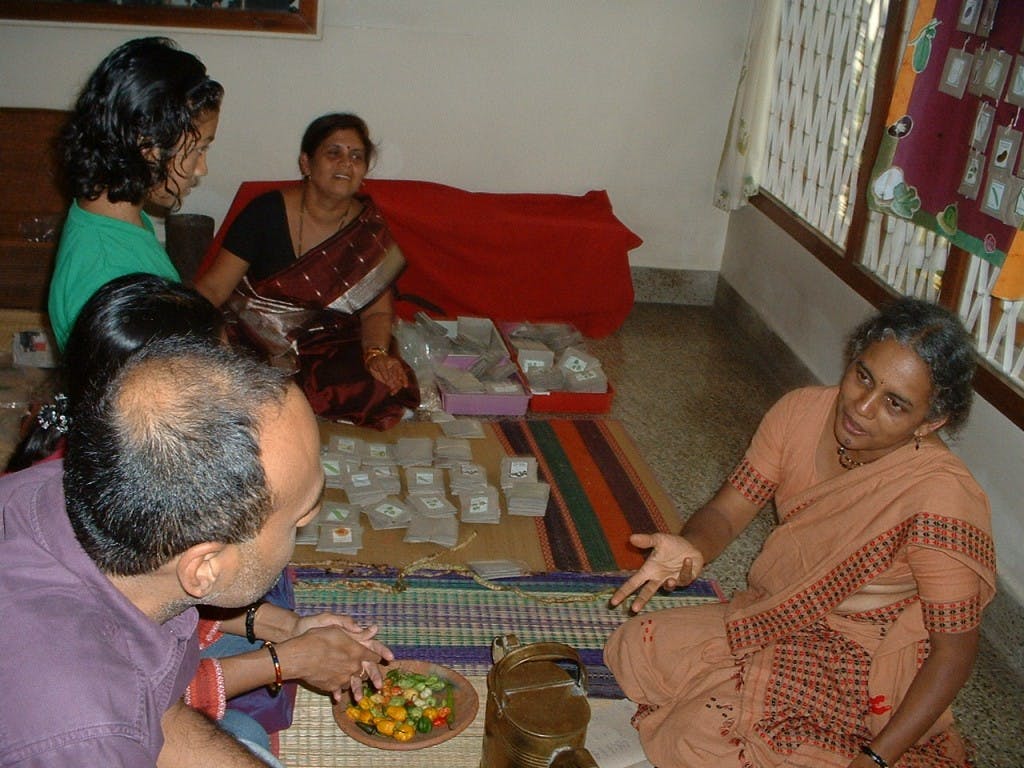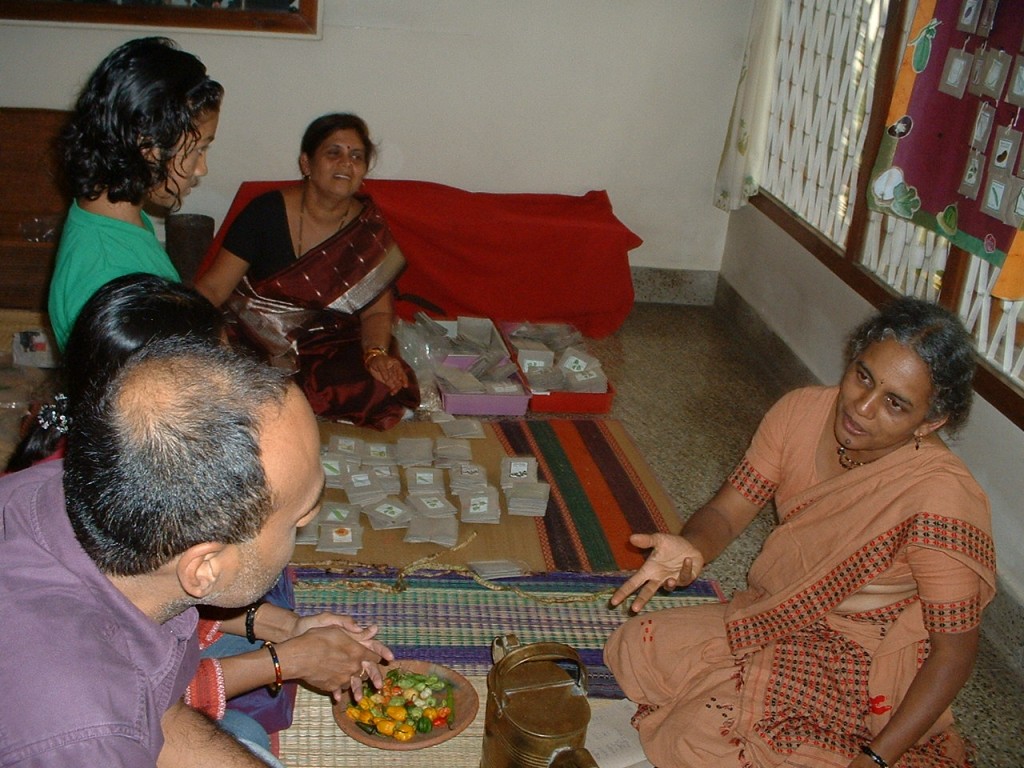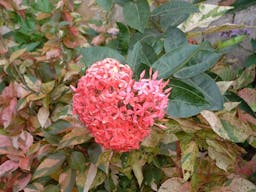Meeting the women farmers of Malnad
Jan 21, 2015
Story


“One need not be an environmentalist or social activist to consider growing fruits, vegetables or flowers at home. Hence we have focussed this activity on selling seeds”, said Sunita Rao, the founder of Vanastree. Meaning “women of the forest” in Kannada, Vanastree (http://www.vanastree.org) is a collective of small farmers from Sirsi taluk of Uttara Kannada district in north western Karnataka, India. Formally named the Malnad Forest Garden and Seed Keepers’ Collective, Vanastree promotes cultivated and wild biodiversity in farms and home gardens. It also advocates for sustainable livelihoods and food security through conservation of traditional seeds and crop varieties.
Malnad or Malenadu (hill country in some Indian languages), is in the Western Ghats (a hilly belt in western India) close to the Sahayadri range in India. Famous for its rich ecology and weather congenial to agriculture, the region has many small organic farmers. Among them is Manorama Joshi, a forty seven year old who has been with Vanastree for the last eight years. She revealed, “In the collective, we have around 150 women from various villages near or away from Sirsi. We meet once in a month to buy or exchange seeds and discuss our cultivation problems or successful agricultural techniques. At the village level, groups of about twenty women get together more often. Some of them also talk about personal issues”.
Rao shared, “We organize an annual Malnad Mela (hill country fair) in Bangalore. A primary objective of this event is to bridge the gap between urban and rural people. Residents of Bangalore are disconnected from their source of water supply, the river Cauvery, which originates in the Western Ghats. Also, we want to demonstrate that there is hope if one looks inside and initiates something fulfilling instead of only crying hoarse. I call it inner gardening”.
Joshi added, “Climate change or financial debt are not our challenges yet. But the latter is creeping in as small farmers need loans. Labourers are becoming expensive. Further, the software industry attracts youth who prefer working for a regular income”. Asked about gender equality in farming, Joshi said, “Women have partial share even if the land title is in the man's name. We believe that if the woman is happy, the entire household will be fine!”




